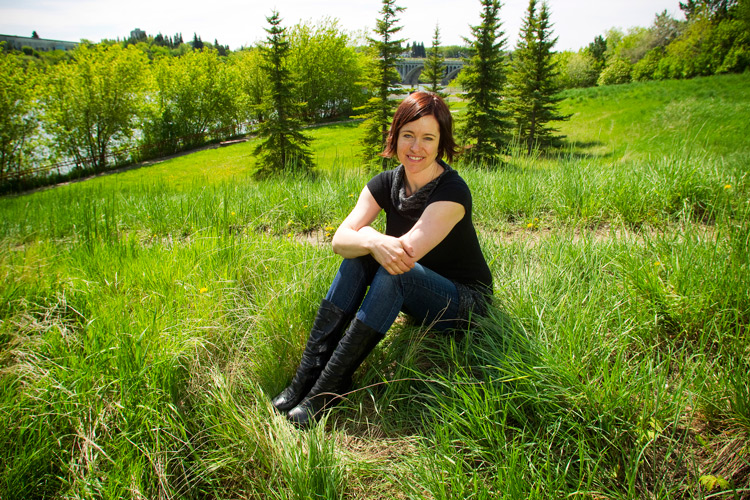U of S researchers awarded $4.4 million to explore past and future of environmental sustainability
Two University of Saskatchewan researchers have been awarded more than $4.4 million for two projects from the Social Sciences and Humanities Research Council of Canada (SSHRC) – the largest ever SSHRC grants awarded to the U of S.
By Mark Ferguson Matching contributions of $1.9 million from national and international partners bring the total to more than $6.3 million for the two projects, led by Geoff Cunfer from the Department of History in the College of Arts and Science, and Marcia McKenzie from the College of Education and the U of S School of Environment and Sustainability.
Matching contributions of $1.9 million from national and international partners bring the total to more than $6.3 million for the two projects, led by Geoff Cunfer from the Department of History in the College of Arts and Science, and Marcia McKenzie from the College of Education and the U of S School of Environment and Sustainability."I congratulate these outstanding teams on their leadership of these international projects, which will deepen our knowledge and guide our actions as Canadians strive for environmental sustainability both locally and worldwide," said Karen Chad, U of S vice-president research.
"These multisectoral research partnerships are key to innovation and to building knowledge for Canada's future," said SSHRC President Chad Gaffield. "With this funding support, we are gaining insight about, and developing innovative solutions to today's social, economic and cultural issues, while training the next generation of researchers and leaders."
Cunfer leads a six-year, $3.3-million project exploring the transition from traditional to industrial farming over the past two centuries and what lessons it might hold for today's food producers. The project will create positions for eight Masters students, 15 PhD students, and five postdoctoral fellows. Six of these positions will be at the U of S, with the others at partner institutions.
"In the transition from traditional to industrial agriculture, production and profits expanded, but ecosystem functions degraded, threatening long-term sustainability," said Cunfer, an associate professor with the U of S history department and School of Environment and Sustainability.
Cunfer and his colleagues in the U.S., Europe and Latin America are working to understand the choices and trade-offs farmers have faced, how they've adjusted, and what this means for sustainability. He explains that with the world's population dependent on industrial farming for food, and two-thirds of the world's farmers poised to make the transition to industrial agriculture, knowledge is needed to underpin sound farm policies.
Cunfer leads the Great Plains Group, one of five research teams in the project. Its members, from the U of S and the University of Michigan, will sift through a land use and population database of more than 1,000 communities at 22 time points since 1850 to build a picture of pioneer expansion into new lands. The team will also look at First Nations farming on the plains.
Three European teams, two in Spain and one in Austria, will compare historical farming practices with modern industrial and organic methods. A Latin American group, with members in Columbia and Cuba, will look at indigenous agriculture, as well as banana, coffee, and sugar plantations. Cuba offers a rare case study: the country lost access to commercial fertilizer after the fall of the Soviet Union.
McKenzie leads a seven-year, $3-million initiative called the Sustainability and Education Policy Network (SEPN) which is exploring new models to improve how environmental sustainability is taught and practiced in schools, universities, and other educational institutions. The initiative will create positions for 10 Masters students, 10 PhD students, and three postdoctoral fellows. Seven of these positions will be at the U of S, with the others at partner institutions.
"Climate change, new environmental technologies, energy and water sustainability are not solely technical issues – they are also cultural and political challenges. To respond to these challenges, we need integrated solutions that depend on a citizenry that is both informed and motivated," said McKenzie, an assistant professor with the U of S educational foundations department and School of Environment and Sustainability.
SEPN plans to develop a set of best practices and policies to engage decision-makers in furthering environmental sustainability efforts across the country through education.
Researchers will analyze existing policy from provincial ministries of education, federal First Nations' school administration, and post-secondary institutions. They will also conduct community-based site analyses to see how sustainability policies are experienced in the classroom, in how organizations conduct their operations, and by the broader community.
SEPN includes a wide range of perspectives. Academic partners include York University and Lakehead University and organizational partners: the Association for the Advancement of Sustainability in Higher Education, the Canadian Centre for Policy Alternatives, the David Suzuki Foundation, Learning for a Sustainable Future, and the Sierra Youth Coalition. Six other groups are contributing to the project: the Assembly of First Nations, the Métis National Office, the Sustainability Solutions Group, the Global Youth Education Network, Ecosource, and the Canadian Federation of Students.
For more information on the project as it develops, visit
www.sepn.ca.
For more information on research at the U of S, visit the
Research Communications website

